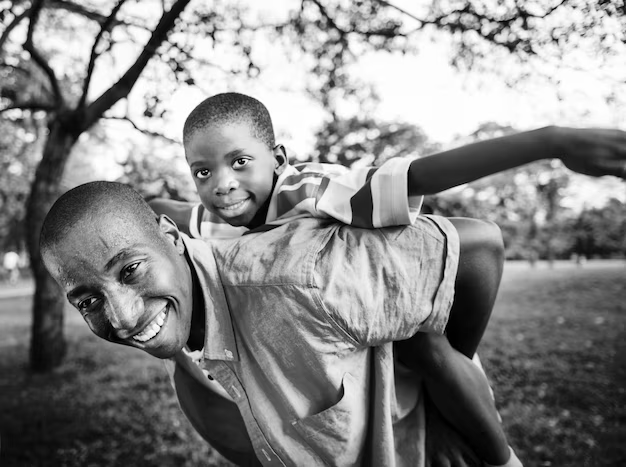Is it African parenting or toxic parenting?

An important discussion on toxic parenting has been triggered by the tragic story of Kenyan actress Nyaboke Moraa and her daughter Marie, who allegedly died by suicide.
This incident emphasizes how critical it is to understand and deal with the issues within families that can result in such tragic consequences. I talked to three people to get their thoughts on parenting and its possible shortcomings in order get a better understanding of this issue.
Grace Karanja, a seasoned therapist currently pursuing her PhD in marriage and family therapy at Pan Africa Christian University (PAC), provides a comprehensive understanding of the differences between toxic parenting and African parenting. She points out that toxic parenting differs from traditional African parenting, even though cultural traditions can sometimes blur the two.
“Toxic parenting must indicate behaviors that are harmful to the children either emotionally, physically, or mentally. This could be my tone, my voice, my approach, my choice of punishment, and how I execute that punishment.”
She stresses that while traditional African parenting values respect and discipline, these should not be confused with fear and extreme forms of punishment. She further points out that excessive pampering or extreme laissez-faire tactics can be toxic too since they fail to create a supportive environment for the children.
Fiona Mutungi, a second-year communication student at Daystar University, provides a personal perspective on the subject.
Fiona comes from a stable household and values her parents’ strictness, which she says protected her from possibly harmful behavior. She does admit, though, that she did not have a strong emotional bond with her mother while growing up.
“Growing up, I had strict parents. One thing I appreciate is that their strictness helped me avoid some things I wanted to do and prevented a lot of mistakes. But I wasn’t that close with my mum specifically, and I got to find out about most things from school or friends,” Fiona shares.
She is an in favor of emotional openness mixed with discipline in parenting, to the point where the children can communicate their wants and feelings without fear of conflict.
Brenda Nyakio, a third year student, relates deeply to Nyaboke Moraa’s story, having experienced a similar toxic dynamic with her own mother.
Brenda emphasizes the value of therapy and counseling for parents, especially for those who may unintentionally transfer their unresolved problems to their kids.
“When I heard Nyaboke Moraa’s story, it was devastating because I’ve been in a similar situation with my mom. It was quite difficult to say the least. But later, when I joined campus, I think she had therapy, and at least she’s okay now.” Brenda said.
She continued to say that parents should go for therapy to understand their children better and so as not to project their bitterness or rejection onto them.
Grace Karanja presents this discussion in the perspective of African parenting traditions, which place a high value on discipline and respect. She points out that extended family members frequently take on important roles in raising children in African families, which tend to function as a collective unit. However, she warns that these traditions can sometimes lead to misunderstandings about fear, respect, and discipline.
“The collective element influences the idea of African parenting. There is an expectation that everybody will play a role in the family, because there is an emphasis on the value of hard work. However, the younger generation often feel that this lacks affection and understanding,” Grace points out.
She goes on to urge parents to differentiate between healthy discipline and toxic behaviors, recognizing the changing dynamics with millennial and Gen Z children.
For children growing up in toxic environments, Grace recommends acknowledging their feelings, seeking therapy, and learning about toxic behaviors to empower themselves. She also emphasizes the importance of setting boundaries and being assertive.
To parents who realize their toxic behaviors early enough, Grace advises coming clean and seeking to understand the damage caused. “It’s important to address the issues honestly and work towards healing. Family therapy and support groups can be crucial in this process,” she said.
The perspectives of Grace Karanja, Fiona Mutungi, and Brenda Nyakio paint a multifaceted picture of parenting in modern Kenya. While African parenting is deeply founded in cultural traditions, it must evolve to suit the needs of today’s children, who are more connected and aware than ever.
Toxic parenting, characterized by harmful behaviors and lack of support, can have devastating consequences, as seen in the tragic case of the late Marie. According to Grace, not all cases of suicide are as a result of toxic parenting. Death through suicide can be as a result of predisposing factors that can be traced to family lineage, precipitating factors that arise from the environment, comorbid mental disorders and perpetuating factors that allow situations to linger on for a long period.
The points of view given by these three individuals highlight the need for knowledge, communication, and professional assistance in creating healthy family interactions.
As society evolves, so should parenting, with a more empathetic and supportive attitude that allows children to grow.
Through awareness, education, and open dialogue, we can work towards a future where children feel safe, valued, and heard, thus nurturing a healthier generation.







